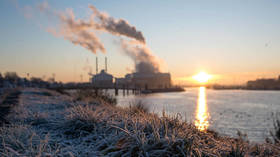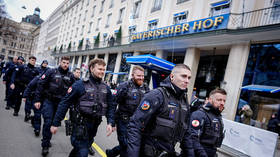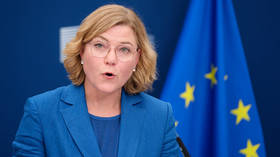Industry body warns Germans about future gas shortages

Germany will have to put up with further gas consumption restrictions or face a severe gas shortage if the next winter is cold, the nation’s Gas Storage Association (INES) warned in a forecast published on Wednesday.
The current level of consumption and the legal gas storage filling requirements would be inadequate in the event of a cold winter, the forecast said. Currently, German gas storages are only required to be filled to 40% by the end of January 2024, the association noted.
The existing regulations would only allow the nation to get through the next winter “if temperatures are warm,” the INES report said, adding that “if temperatures are medium to cold, the gas storage facilities will be heavily or completely emptied.”
In the worst-case scenario, the storage facilities will be “already completely emptied in January 2024 during cold temperatures,” the forecast said, adding that it is unlikely Berlin would be able to compensate for the missing volumes and would face a severe shortage through the rest of the winter.
“Looking ahead to the coming winter, gas supply security in Germany has not yet been restored,” the INES managing director, Sebastian Bleschke, warned. “It is crucial to fill the gas storage facilities and greatly reduce consumption when it gets cold,” he added. Bleschke also called for the expansion of German gas infrastructure that could “be activated at short notice and actually provide additional gas in the coming winter.”
The forecast presented by INES described “warm winter temperatures” like those observed in parts of Europe in 2020, when winter in the Baltic Sea region, Finland and Western Russia was up to eight degrees Celsius warmer than on average.
The “cold winter” scenario was based on the 2010-2011 season, which saw record cold temperatures reported in the UK, Ireland, France, and parts of Scandinavia as early as November.
Germany, along with other EU states, has been gradually reducing its reliance on Russian energy supplies since the start of the ongoing conflict between Moscow and Kiev. The EU did not outright ban Russian pipeline gas imports, but the flows still dwindled significantly due to Ukraine-related sanctions and following the sabotage of the Nord Stream 1 pipeline, which was one of the main routes for Russian gas to Europe.













